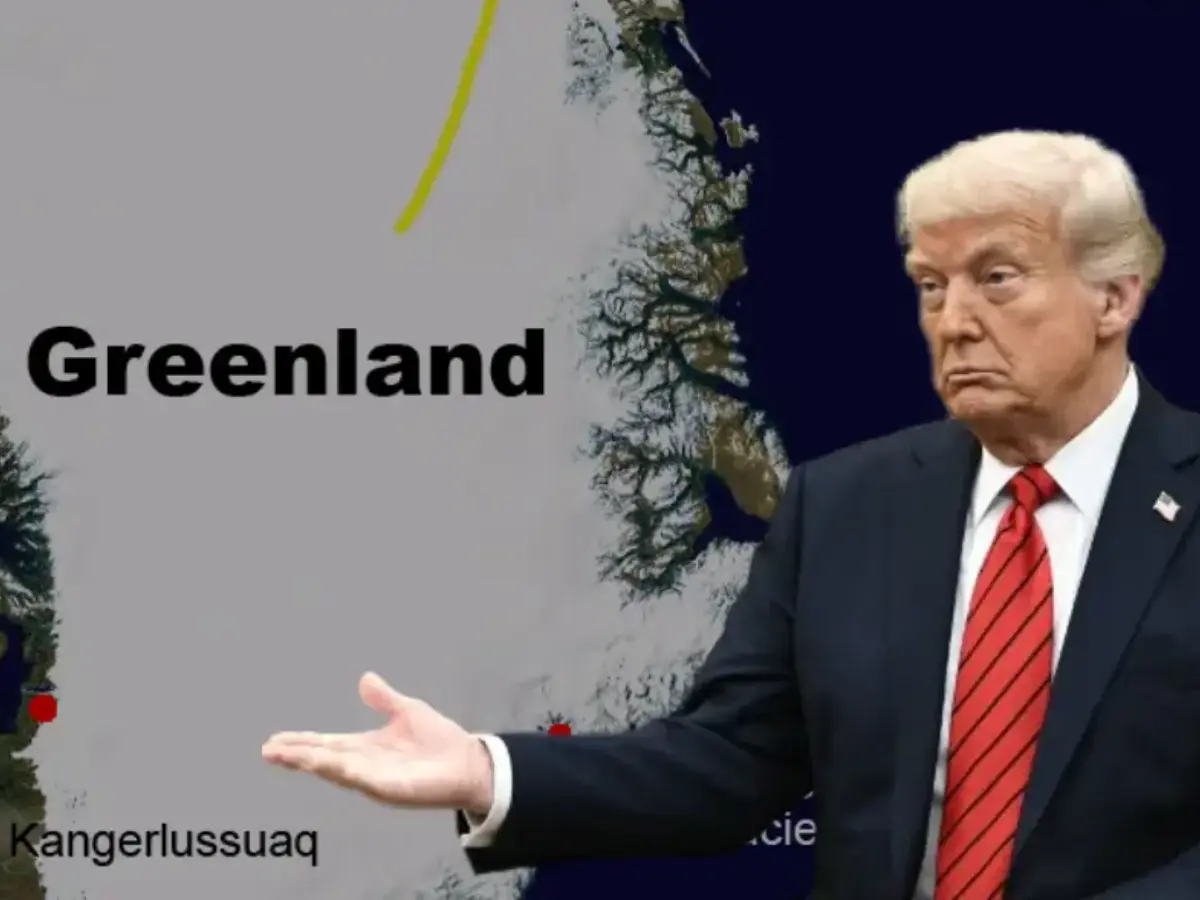Denmark summoned the US charge d’affaires on Wednesday, (Aug 27) in response to reports alleging American attempts to interfere in Greenland, a self-governing territory within the Kingdom of Denmark. The move came amid rising concerns about US interest in the strategically important, resource-rich island—a territory US President Donald Trump has expressed a desire to acquire for national security purposes. According to Danish public broadcaster DR, at least three American officials with close ties to Trump were reportedly spotted in Nuuk, Greenland’s capital, seeking individuals who could potentially support US-backed influence efforts aimed at weakening Danish control. Citing sources, DR suggested these activities may be part of broader US intelligence efforts.
Danish Prime Minister Mette Frederiksen expressed deep concern over the recent reports of alleged US interference in Greenland, emphasising that the issue could have serious implications for diplomatic relations. Speaking to Danish television, Frederiksen remarked, “I note that the Americans have not clearly rejected the DR report today, and that is of course serious.” She had previously reacted strongly to similar allegations, stating firmly: “You cannot spy against an ally,” underlining the fundamental breach of trust such actions would represent between close partners. Denmark’s Foreign Minister Lars Løkke Rasmussen, in a statement to AFP, acknowledged growing interest from “foreign actors” regarding Greenland’s status. He stated, “Any attempt to interfere in the internal affairs of the Kingdom will, of course, be unacceptable.”
US response
In response to allegations of America’s covert activities in Greenland, the White House dismissed any involvement and asked the Danish government to ‘calm down.’ “We think the Danes need to calm down,” though they stopped short of confirming any influence operations. In another statement, the US State Department confirmed that Chargé d’Affaires Mark Stroh had met with Danish officials, describing the meeting as “productive” and reaffirming the “strong ties” among the US, Denmark, and Greenland. While declining to address the actions of private American citizens in Greenland, a spokesperson said that the US respects the right of Greenland’s people to decide their own future.
US Vice President JD Vance’s Greenland visit
In March, US Vice President JD Vance sparked controversy with an uninvited visit to Greenland, seen as a provocation by both Copenhagen and local leaders. Initially planned as a multi-day tour, the visit was cut short to a one-day stop at the US Pituffik military base after backlash across Europe. During his speech, Vance accused Denmark of neglecting Greenland’s security, stating it had “not done a good job by the people of Greenland.” The visit intensified tensions, highlighting U.S. strategic interest in the island, which hosts key missile-defence infrastructure crucial to countering threats from Russia.
Greenland and Denmark
A January poll revealed that while a majority of Greenland’s roughly 57,000 residents support the idea of independence from Denmark, they do not favour becoming part of the United States. Both Danish and Greenlandic officials have repeatedly emphasised that the Arctic island is not for sale and that any decisions about its future will be made by its own people. In the lead-up to Greenland’s general election on March 11, Denmark’s intelligence agency raised concerns about potential foreign interference—particularly from Russia. However, the agency confirmed that no actual attempts at meddling were detected. Denmark, like the United States, is a founding member of NATO and has stood as a close military ally, having participated in US-led operations in Afghanistan and Iraq.
Interest in Greenland from Washington isn’t new. The Wall Street Journal earlier reported in May that US intelligence agencies had been instructed to gather information on Greenland’s independence movement, including identifying figures in both Greenland and Denmark who might align with American strategic interests. President Donald Trump had openly expressed a desire to purchase the island, citing its strategic Arctic location, vast mineral wealth, and the presence of a crucial US missile defence base at Pituffik. As Arctic ice melts, opening new shipping routes and increasing access to resources, Greenland’s geopolitical value has grown—raising alarms in Washington over expanding Russian and Chinese influence.
Related Stories

